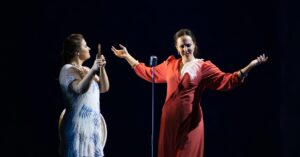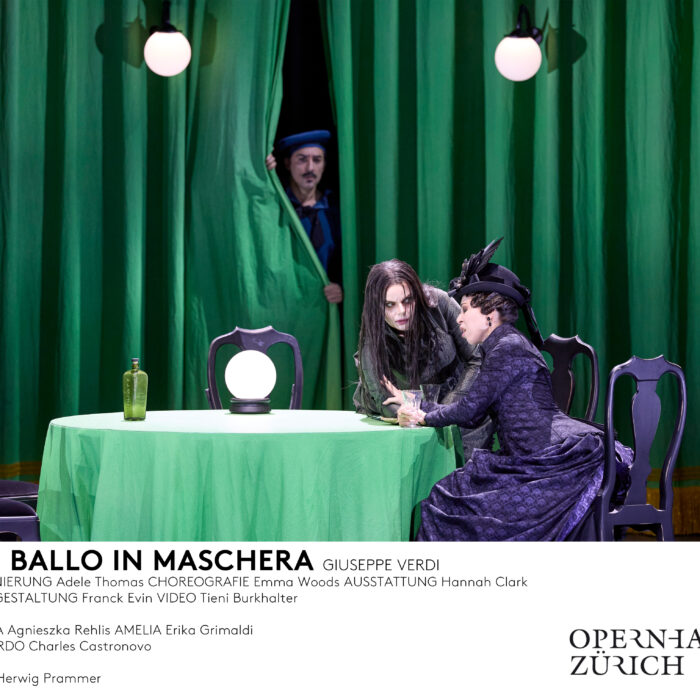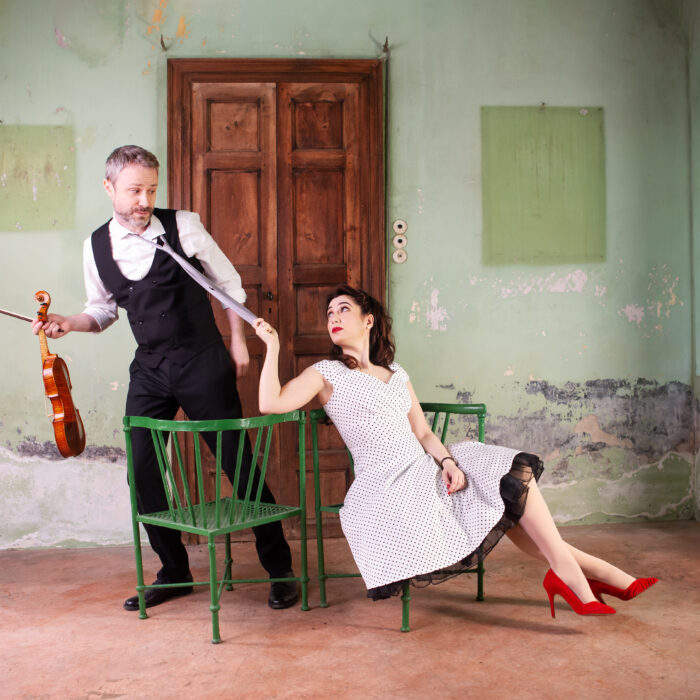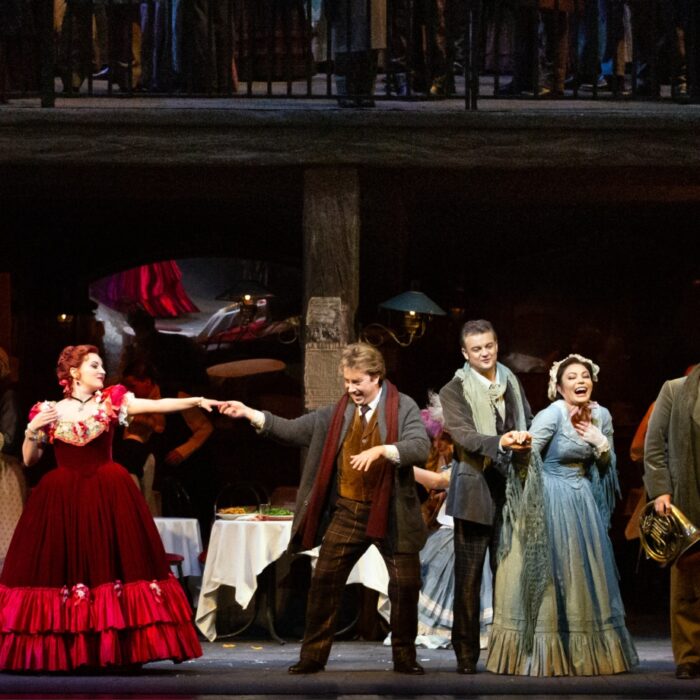
Wexford Festival Opera 2023 Review: L’Italiana In Algeri
Manoshvili Steals The Show With A Standout Performance
By Alan Neilson(Photo: Padraig Grant)
The success of the Wexford Factory, the festival’s development program for young singers, was splendidly illustrated by its presentation of Rossini’s comic opera “L’Italiana in Algeri.”
Without exception, the singers engaged enthusiastically with Conor Hanratty’s fast-moving and highly amusing staging that kept the audience entertained and laughing along. Although they possess various levels of experience, all produced quality performances, which suggested the potential for successful careers.
Emerging Talent
It was, however, Georgian bass Giorgi Manoshvili who stole the show. Since last year’s festival, in which he made such a strong impression, he has found himself in demand from opera houses across Europe and appears destined for the top. He possesses a secure, resonant voice with an attractive, warm, chestnut-colored timbre, which he used intelligently and sensitively to bring Mustafa expertly alive, which he added to with a fine acting performance replete with exaggerated comic facial expressions.
His Mustafa was brilliantly dismissive, aloof and unaware as he strode around the stage with unfettered confidence and a swagger in his step while unknowingly being mocked by Isabella. His recitatives were beautifully crafted to bring about the full impact of the comedy, while his arias and ensemble singing showed off the quality and versatility of his singing, in which his quick-fire patter and florid coloratura impressed. By any standard, it was an excellent performance.
Mezzo-soprano Marta Pluda produced an expressively persuasive reading, using her formidable upper register and the dark tones of her palette to flesh out the emotional depths and feisty nature of her character, although in the initial stages this was occasionally at the expense of the brio and freedom that one expects. As the opera progressed, however, she quickly improved, and the voice moved with greater ease and flexibility, allowing her to show off her ability to craft finely detailed lines and demonstrate her pleasing coloratura. Her strong presence also ensured she was able to joust convincingly with Manoshvili’s Musatfa.
Soprano Leah Redmond also made a slow start in the role of Elvira. By the end of the performance, however, she was in fine voice, singing with freedom, energy and spirit as she showed off her attractive upper register and her ability to move with ease, strength and accuracy when climbing above the orchestra.
Baritone Eoin Foran made an excellent impression with his portrayal of Taddeo. He possesses a lyrically strong, secure voice with an appealing timbre, which he used intelligently to craft attractively moulded phrases and develop his character. His strong stage presence, underpinned by his fresh, energetic and active approach, ensured that he was able to hold the audience’s attention throughout.
The role of Lindoro was played by Victor Jiménez Moral. He has a pleasing-sounding tenor and produced a tidy performance. However, although his singing was technically solid, his projection was a little weak, and he would have benefited from taking a few more risks. His acting was strong, memorably cutting a fine figure imitating a pop singer using his broom as a microphone.
The role of Haly is not one in which it is easy to make a mark. The music is not particularly engaging, and he is overshadowed by the larger-than-life characters that surround him, but bass Peter Ledbetter made a good impression, with his Act two aria being the high point.
Mezzo-soprano Sarah Luttrell put in a confident performance in the small role of Zulma. In the few opportunities available, she managed to create a strongly defined character and impress with her attractive and technically secure voice.
The numerous ensemble pieces were performed superbly. The balance of the group and of the individuals within the group was beautifully balanced; one could hear every singer clearly. And thanks to Hanratty’s inventive direction, they were often visually interesting and had the audience laughing out loud.
Strong Support From The Musical & Stage Directors
The conductor, Gioele Muglialdo, who arranged the score for two violins, viola, cello, double bass, flute, two clarinets, oboe, bassoon and horn, elicited a rhythmically vibrant reading from the Wexford Festival Opera Ensemble, which, despite its small-scale, managed to generate the necessary dynamic contrasts and textural depth to carry the drama. The only drawbacks were the underpowered strings, which, at times, struggled to assert themselves against the woodwind, which created a textural imbalance and also undermined the brilliance of Rossini’s signature cescendi.
Hanratty, who also designed the sets, was ably supported by costume designer Frances White and lighting designer Daniele Naldi in producing an unobtrusive staging that allowed the comedy to flourish without focusing on any tangential themes. And it worked very well! He set the work in a hotel in Algiers, populated by the usual people one would find there: a cleaner (Lindoro), a concierge (Taddeo) and the guests (Isabella), while Mustafa is the owner along with his wife Elvira. The costumes were a mixture of styles, playing up the traditional colorful dress of the area mixed with Western clothes.
Every opportunity was used to promote the fun. When the guests escaped from the hotel, they carried suitcases colored red, white and green; after all, they were from Italy. Mustafa wore boxing gloves, punching the air towards the audience during an ensemble. The emotional responses of the characters were always exaggerated. The comedy just kept on flowing, with Hanratty’s amusing and imaginatively translated text for the surtitles provoking plenty of laughter.
Not only was this an excellent afternoon’s entertainment, but it also served as a validation of the excellent work Wexford is doing in helping bring through the next generation of artists.



